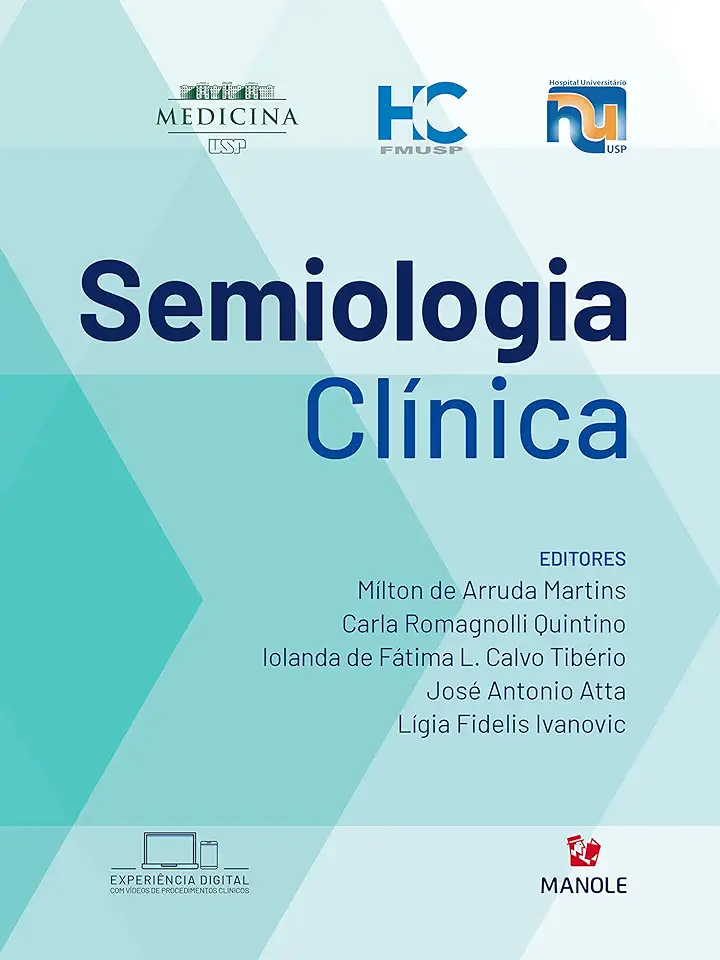
Clinical Semiology - Milton de Arruda Martins
Clinical Semiology: A Comprehensive Guide to the Art and Science of Physical Examination
By Milton de Arruda Martins
Introduction
Clinical semiology is the study of the signs and symptoms of disease. It is a fundamental skill for all healthcare professionals, as it allows them to identify and diagnose medical conditions. This comprehensive guide to clinical semiology provides a detailed overview of the art and science of physical examination.
Part I: The Basics of Clinical Semiology
This section of the book covers the basic principles of clinical semiology, including:
- The history of clinical semiology
- The different types of physical examination
- The techniques of physical examination
- The interpretation of physical examination findings
Part II: The Physical Examination of the Head and Neck
This section of the book provides a detailed guide to the physical examination of the head and neck, including:
- The examination of the scalp
- The examination of the face
- The examination of the eyes
- The examination of the ears
- The examination of the nose
- The examination of the mouth
- The examination of the throat
Part III: The Physical Examination of the Chest and Lungs
This section of the book provides a detailed guide to the physical examination of the chest and lungs, including:
- The inspection of the chest
- The palpation of the chest
- The percussion of the chest
- The auscultation of the chest
Part IV: The Physical Examination of the Cardiovascular System
This section of the book provides a detailed guide to the physical examination of the cardiovascular system, including:
- The inspection of the heart
- The palpation of the heart
- The auscultation of the heart
- The measurement of blood pressure
Part V: The Physical Examination of the Abdomen
This section of the book provides a detailed guide to the physical examination of the abdomen, including:
- The inspection of the abdomen
- The auscultation of the abdomen
- The percussion of the abdomen
- The palpation of the abdomen
Part VI: The Physical Examination of the Musculoskeletal System
This section of the book provides a detailed guide to the physical examination of the musculoskeletal system, including:
- The inspection of the musculoskeletal system
- The palpation of the musculoskeletal system
- The range of motion testing of the musculoskeletal system
Part VII: The Physical Examination of the Neurological System
This section of the book provides a detailed guide to the physical examination of the neurological system, including:
- The mental status examination
- The cranial nerve examination
- The motor examination
- The sensory examination
- The coordination examination
- The gait examination
Conclusion
Clinical semiology is a complex and challenging field, but it is also an essential skill for all healthcare professionals. This comprehensive guide to clinical semiology provides a detailed overview of the art and science of physical examination, and it is an invaluable resource for students, residents, and practicing physicians.
Why You Should Buy This Book
If you are a healthcare professional, then you need this book. Clinical semiology is a fundamental skill for all healthcare professionals, and this book provides a comprehensive overview of the art and science of physical examination. With over 1,500 pages of content, this book is packed with information that you will use on a daily basis.
This book is also an excellent resource for students and residents. It provides a clear and concise overview of clinical semiology, and it is an invaluable tool for preparing for exams and clinical rotations.
If you are serious about your career in healthcare, then you need this book. Order your copy today!
Enjoyed the summary? Discover all the details and take your reading to the next level — [click here to view the book on Amazon!]